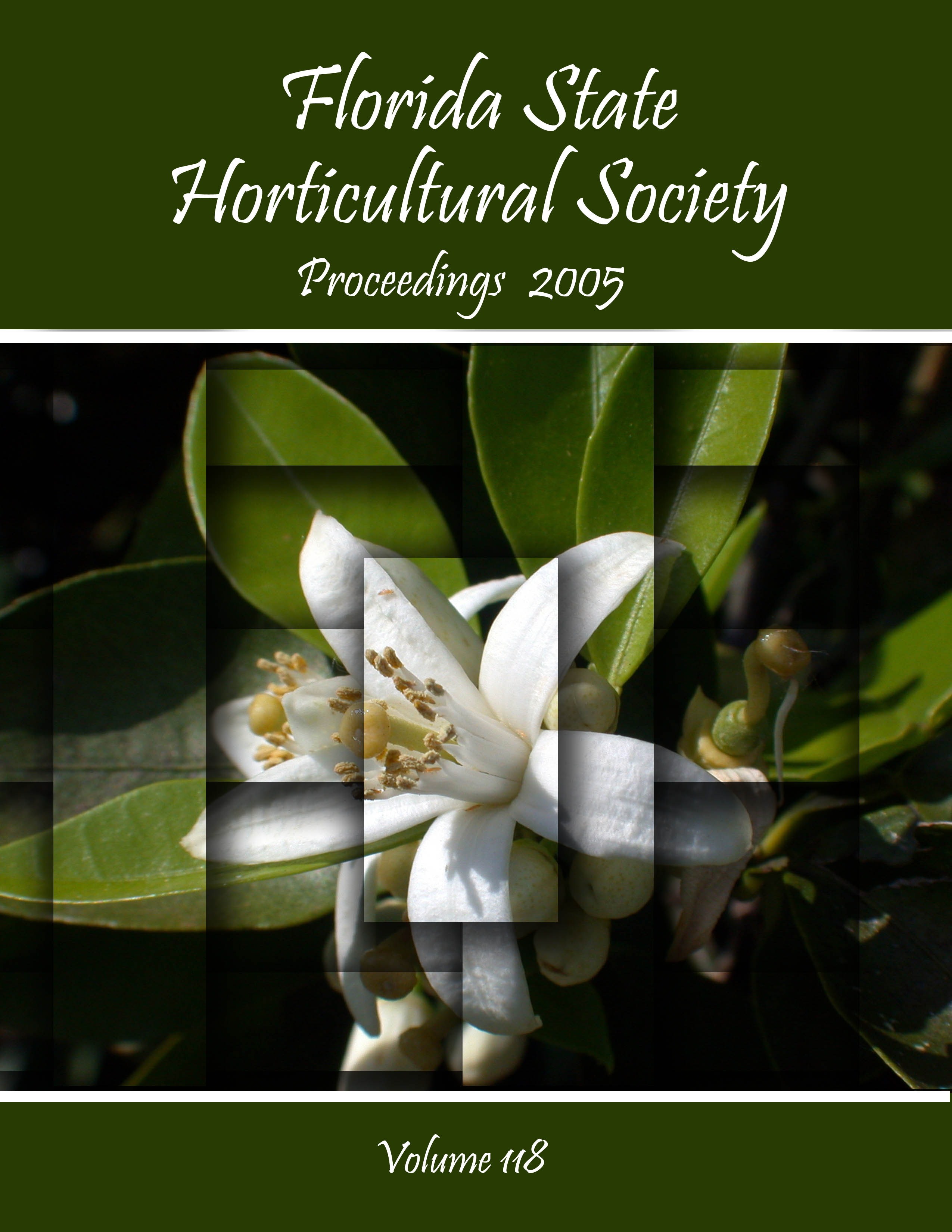Abstract
The influence of growing and incorporating summer cover crops on the subsequent vegetable crop production and on population densities of the root knot nematode, Meloidogyne incognita, was investigated in field and pot experiments at Homestead, Florida. The cover crops utilized in the field and pot experiments were sunn hemp (Crotalaria juncea), cowpea (Vigna unguiculata), velvetbean (Mucuna deeringiana) and sorghum sudangrass (Sorghum bicolor × S. bicolor var. sudanense). A nematode susceptible vegetable crop, okra (Abelmoschus esculentus) was grown in rotation with these given cover crops. The results indicated that all four cover crops improved the subsequent okra yields, and especially sunn hemp and velvetbean, which produced large amounts of biomass with high contents of nitrogen (N). The okra fruit yields in the field were increased by 33% and 11% in velvetbean and sunn hemp treatments compared that in the sorghum sudangrass treatment, which is the conventional cover crop treatment in this area. In crop rotation studies conducted in pots, okra fruit yields were increased by 3.6, 3.1 and 1.5 times by rotation with sunn hemp, velvetbean and cowpea, respectively, compared to yields of okra following okra. Populations of root-knot nematodes were substantially suppressed by sunn hemp, cowpea and velvetbean, and this suppression was especially strong by sunn hemp. Moreover, the root knot nematode suppressive effect of sunn hemp persisted to protect a subsequent okra crop. The results indicate that rotating the summer cover crops, sunn hemp or velvetbean, with okra can significantly improve okra yields in addition to suppressing root knot nematodes.

